-
About
- About Listly
- Community & Support
- Howto
- Chrome Extension
- Bookmarklet
- WordPress Plugin
- Listly Premium
- Privacy
- Terms
- DMCA Copyright
- © 2010-2024 Boomy Labs


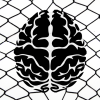 Jodie Taylor
Jodie Taylor
Listly by Jodie Taylor
There is significant research that suggests student engagement is directly correlated to teachers and their style of teaching. Good pedagogy creates opportunities for active and collaborative learning, encourages students to be curious and autonomous learners, and provides the foundation for students to develop learning relationships with their peers. Here you'll find a collection of resources and strategies to help you increase student engagement and develop the culture of your classroom. Resources in this collection have been curated especially for teachers of the arts and humanities working in higher education.

A student’s critical thinking skills can be strengthened when an instructor probes the student’s viewpoint on the discussion topic by seeking additional clarification, explanation, and justification from the student.

Students must believe they can learn, including that they can overcome and learn from failure. Giving students some control over learning processes helps develop this confidence and commitment to learning.
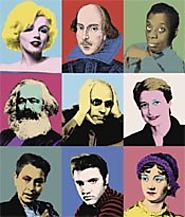
A recent commentary in The Chronicle of Higher Education claimed that the field of cultural studies is "about the hottest thing in humanities and social-science research right now, but it's largely peopled by scholars in literature, film and media, communications, and philosophy" Given the popularity of cultural studies for a growing number of scholars, I have often wondered why so few academics have incorporated cultural studies into the language of educational reform. If educators are to take seriously the challenge of cultural studies, particularly its insistence on generating new questions, models, and contexts in order to address the central and most urgent dilemmas of our age they must critically address the politics of their own location. This means understanding not only the ways in which institutions of higher education, in part, shape the work we do with students but also the ways in which our vocation as educators support, challenge, or subvert institutional practices that are at odds with democratic processes and the hopes and opportunities we provide for the nation's youth. In what follows, I want to explore not only why educators refuse to engage the possibilities of cultural studies but also why scholars working within a cultural studies framework often refuse to take seriously pedagogy and the role of schools in the shaping of democratic public life.

By Professor Andrew Martin MAPS, Faculty of Education and Social Work, University of Sydney (from 2014: School of Education, University of New South Wales)
Many factors and processes operate in the classroom to affect academic learning. These factors and processes can be broadly categorised into two groups: will and skill (Covington, 1992). ‘Will’ refers to student motivation, while ‘skill’ refers to the knowledge and competencies centrally relevant to performing academic tasks. Research and theory generally confirm that will precedes skill; that is, motivation represents the inner drive and activity that provides the impetus, energy and direction required to develop and sustain one’s knowledge and competence.
In addition to this inner drive, research and theory show that external influences play an important role in the development of will and skill. Major external influences include parents/caregivers, peers, counsellors/psychologists and teachers. Of these, much research suggests it is the teacher (via instruction) who perhaps plays the greatest role in directly impacting both academic will and academic skill.

Times Higher Education would never dare to suggest that today’s undergraduates are anything other than a lively and engaged lot. Yet everyone has their off days. Surely there cannot be a lecturer out there who has not encountered a sullen student or two during the course of their illustrious teaching career.
With this in mind, THE asked academics to recall any particularly exasperating examples of student sulkiness and what they do when faced with such a predicament in a seminar or lecture hall. What tactics do they use to convert glumness into enthusiasm and exuberance? Here, eight contributors share their experiences and their teaching tips.
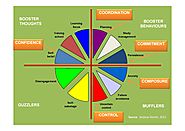
The saying goes, “Where there is a will, there is a way”. I’ve been blessed to work with fantastically committed teachers, support staff, governors, parents and pupils during my career who through sheer will power have made some great things happen. Motivation matters if you want to succeed.
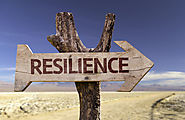
by Andrew J. Martin , Herbert W. Marsh , Andrew J. Martin , Herbert W. Marsh .Self-concept Enhancement and Learning Facilitation Research Centre University of Western Sydney, Australia
Academic resilience is defined as the ability to effectively deal with setback, stress or pressure in the academic setting. Although there is a large body of research focusing on general or life resilience, there has been little research into the issue of academic resilience. This paper utilises the Student Motivation Wheel (Martin, 2003a, 2003b) as a basis for conceptualising academic resilience and the Student Motivation Scale (SMS – Martin, 2001, 2002) as a basis for measuring it. The study found that academic resilience comprises self-belief (confidence), a sense of control, low anxiety (composure), and persistence (commitment) as assessed through administration of the SMS (that measures each of these four dimensions) to 400 Australian high school students. Implications for pedagogy are discussed. Resilience Why are some (often motivated) students debilitated by setbacks, poor performance, stress, and study pressure while others pick themselves up, recover, and move on? Why do some students get caught in a downward spiral of underachievement while others respond proactively to poor performance and break this downward spiral?

Educational psychology has generated a prolific array of findings about factors that influence and correlate with academic achievement. We review select findings from this voluminous literature and identify two domains of psychology: heuristics that describe generic relations between instructional designs and learning, which we call the psychology of “the way things are,” and findings about metacognition and self-regulated learning that demonstrate learners selectively apply and change their use of those heuristics, which we call the psychology of “the way learners make things.” Distinguishing these domains highlights a need to marry two approaches to research methodology: the classical approach, which we describe as snapshot, bookend, between-group experimentation; and a microgenetic approach that traces proximal cause-effect bonds over time to validate theoretical accounts of how learning generates achievements. We argue for fusing these methods to advance a validated psychology of academic achievement.

I have combed through tons of online resources on how to differentiate instruction, and have put together this collection of the clearest, most high-quality books, articles, videos and documents for learning how to differentiate in your classroom. Continue Reading →
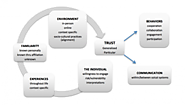
Abstract: Digital spaces are populated by youth who navigate, consume, create, and distribute information through their participation as designers, contributors, respondents, and distributors. A key prerequisite to collaboration, participation and distributed knowledge is trust. The literature informs us that the creation of trust involves several variables: the individual, their experiences, familiarity, and the environment (online, offline, context). Little is known about how low SES youth navigate within and across on- and offline spaces. This paper draws on sociological theories of generalized trust to examine the impact that trust/distrust had on the digital space engagement of six, low income, urban youth, 16-18 years of age, who self-identified as active users of mobile technology. Participants were observed, interviewed, kept journals, and had remote monitoring software installed on their devices. The importance of trust as a precursor to active engagement in online spaces was evident across the data set. This paper argues that trust as a continuum (high-low) develops in relation to one’s experiences and varies with context/environment. Secondly I suggest that distrust is a separate and distinct construct from trust. These bifurcations of trust have different implications for the engagement and collaborative practices in both on- and offline spaces.
Martha Hoff,
Published Online: June 15, 2016 in Digital Culture & Education